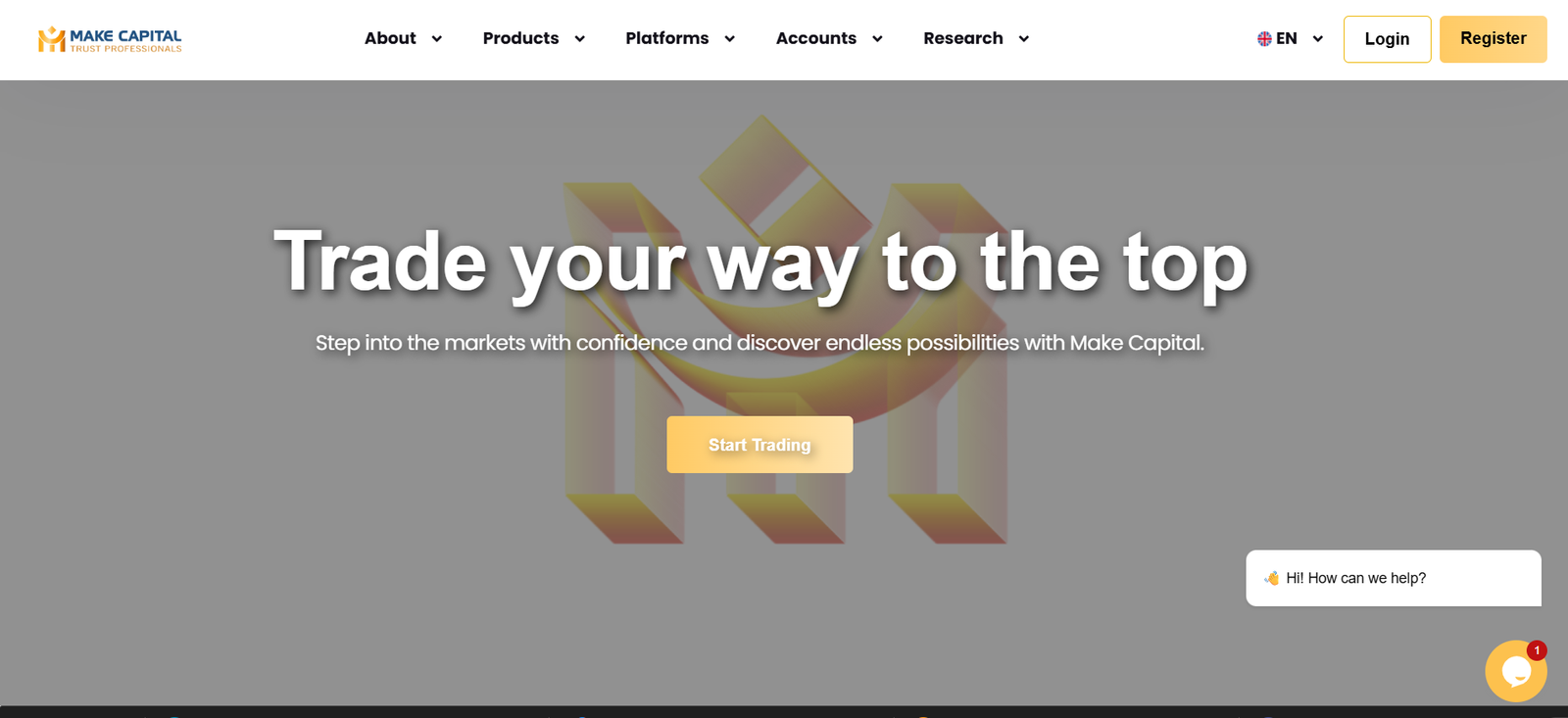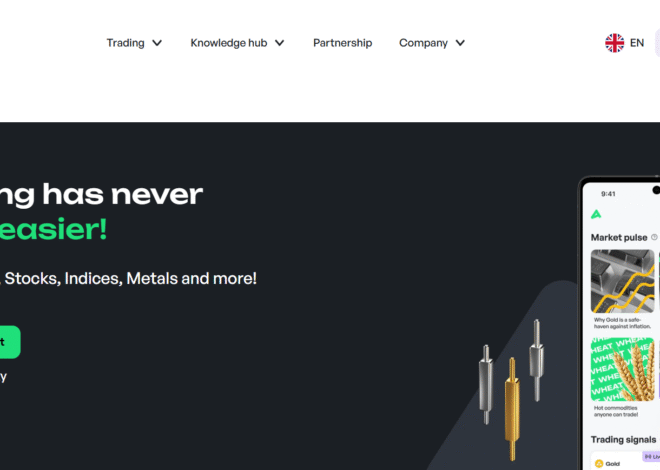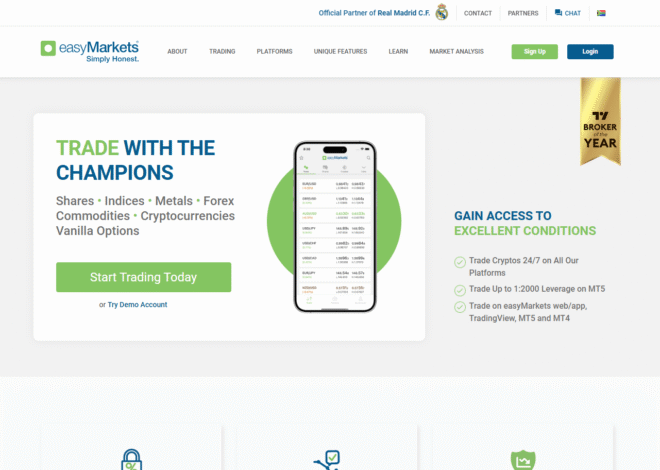
Make Capital EXPOSED: Read This Critical Warning
The digital landscape of investment opportunities is fraught with peril, a minefield where genuine platforms stand alongside sophisticated scams designed to fleece unsuspecting investors. Our investigative team, dedicated to exposing financial misconduct, has turned its critical gaze towards Make Capital, a platform increasingly drawing attention for all the wrong reasons. This comprehensive article serves as an urgent public warning, meticulously detailing the red flags, user complaints, and regulatory concerns that demand immediate attention before anyone considers entrusting their hard-earned money to Make Capital. Our findings suggest a disturbing pattern of behavior consistent with investment fraud, urging extreme caution.
Regulatory Warnings and Compliance Issues: A Troubling Absence
One of the foundational pillars of a trustworthy financial broker is robust regulatory oversight. Legitimate firms operate under the strict scrutiny of financial authorities, providing a layer of protection for investors. However, our investigation into Make Capital reveals a glaring and deeply troubling absence of such essential safeguards. This lack of proper authorization is not merely a technicality; it is a fundamental red flag that should immediately trigger alarm bells for any potential investor.
Lack of Authorization from Reputable Bodies
Our extensive search across major global financial regulatory databases – including the Financial Conduct Authority (FCA) in the UK, the Australian Securities and Investments Commission (ASIC), the Cyprus Securities and Exchange Commission (CySEC), and others – yielded no evidence that Make Capital holds the necessary licenses to offer financial services in these jurisdictions. This isn’t an oversight; it’s a critical deficiency. Brokers that operate without proper licensing are not accountable to any authority, meaning they do not adhere to investor protection schemes, capital adequacy requirements, or dispute resolution mechanisms designed to safeguard client funds.
Operating without a license essentially means Make Capital is a rogue entity in the eyes of established financial systems. This puts investors at immense risk, as there is no legal recourse or regulatory body to appeal to should things go wrong – a scenario that, as we’ll detail, appears to be distressingly common with this platform. The promises of high returns or sophisticated trading tools mean nothing if the platform itself is operating outside the law.
Jurisdictional Red Flags and Obscure Origins
Further compounding the regulatory concerns are the often vague or misleading claims regarding Make Capital‘s operational base. Legitimate brokers are transparent about their headquarters and the specific licenses they hold for each region they serve. In contrast, information regarding Make Capital‘s physical location, registration details, and specific regulatory endorsements is often obscure, inconsistent, or entirely absent. This deliberate lack of transparency is a classic tactic employed by fraudulent operations seeking to evade accountability and make it difficult for authorities or victims to trace them.
When a broker cannot clearly state where it is regulated and by whom, it signals a significant risk. Investors should ask themselves: if an issue arises, which legal framework applies? Which authority can intervene? For Make Capital, the answer appears to be none that offer meaningful protection. This ambiguity is a deliberate shield for illicit activities, making it nearly impossible for victims to pursue legal avenues for recovery.
Sanctions and Blacklists: Warnings from Authorities
While a definitive global blacklist entry specifically for “Make Capital” might be pending in some regions, the pattern of their operation aligns perfectly with the characteristics of entities frequently flagged by financial watchdogs. Regulators often issue warnings about unregulated firms that target their citizens, even if they haven’t yet named a specific entity. The absence of a license and the prevalence of user complaints (which we will delve into next) are precisely the criteria that lead to such warnings.
The FCA, ASIC, and other regulatory bodies regularly update their warning lists, cautioning the public against firms operating without authorization. While Make Capital might not yet appear on every single list, its operational model – high-pressure sales, promises of unrealistic returns, and difficulty with withdrawals – mirrors the profiles of countless other entities that have been blacklisted. This foreshadows potential future official warnings and underscores the present danger. Investors are urged to consult official regulatory warning lists before engaging with any financial service provider.
Analysis of User Complaints: A Pattern of Distress
Beyond the regulatory vacuum, the most damning evidence against Make Capital comes directly from the individuals who have interacted with the platform. A consistent and alarming pattern of user complaints has emerged across various independent review sites and consumer protection forums, paint a grim picture of a platform that prioritizes extracting funds over legitimate service. These complaints are not isolated incidents but rather a systemic issue, pointing towards deliberate and deceptive practices.
Allegations of Account Manipulation and Unfair Trading
Numerous users have reported suspicious activity within their Make Capital trading accounts. These allegations include trades being executed without their consent, sudden and unexplained losses, and the manipulation of trading conditions. Some users claim that their profitable trades were inexplicably reversed or closed, while losing trades were allowed to run their course, quickly depleting their balances. This kind of alleged account manipulation is a hallmark of fraudulent brokers who are not genuinely interested in facilitating trading but rather in creating a scenario where client funds are systematically siphoned off.
One common complaint details how initial small deposits might show promising, albeit fabricated, returns, only to be followed by pressure to invest larger sums. Once significant capital is committed, the alleged manipulation begins, leading to rapid and irreversible losses. This tactic is designed to build false confidence before the major financial hit.
Unsolicited Contact and Aggressive Pressure Tactics
Many individuals report being contacted by representatives of Make Capital through unsolicited calls, emails, or social media messages. These initial contacts often promise “guaranteed” high returns, exclusive investment opportunities, or “expert” guidance that will make them rich quickly. Once contact is established, the pressure escalates. Users describe relentless phone calls, often from numbers that appear to be international or frequently change, urging them to deposit more funds, take out loans, or even liquidate other assets to invest further.
These high-pressure sales tactics are deeply unethical and are a clear indicator of a scam. Legitimate financial advisors adhere to strict ethical guidelines, providing balanced information and allowing clients ample time to make informed decisions. The aggressive, fear-of-missing-out (FOMO) based approach employed by Make Capital is designed to bypass rational thought and coerce individuals into making hasty, ill-advised investments. This behavior is reminiscent of boiler room scams that prey on vulnerability.
Customer Support Blackouts and Disappearing Act
A recurring theme in user complaints is the sudden and complete cessation of communication from Make Capital once withdrawal requests are initiated or when significant losses occur. Initially, customer support might appear responsive and helpful, especially during the deposit phase. However, as soon as a user attempts to retrieve their funds or questions suspicious account activity, the lines of communication reportedly go dark. Emails go unanswered, phone numbers become unreachable, and assigned “account managers” vanish.
This “disappearing act” is not just poor customer service; it is a deliberate strategy to avoid accountability and prevent victims from recovering their money. It leaves investors feeling helpless and isolated, with no avenue to pursue their claims. This tactic is a clear signal that the platform is not designed for long-term client relationships but rather for short-term extraction of funds.
Deceptive Marketing Tactics and Misleading Claims
The allure of quick riches is a powerful motivator, and Make Capital appears to expertly exploit this human desire through a sophisticated web of deceptive marketing tactics. These strategies are designed to create an illusion of legitimacy and profitability, drawing in new victims while obscuring the inherent risks and fraudulent nature of the operation.
Fabricated Testimonials and Guarantees of Returns
Make Capital allegedly employs highly polished websites and social media campaigns featuring glowing, often anonymous, testimonials of individuals claiming to have made substantial profits with minimal effort. These testimonials are almost certainly fabricated, designed to create a false sense of trust and success. Accompanying these are often bold claims of “guaranteed returns,” “risk-free investments,” or “expert strategies” that promise consistent, high yields far exceeding what is realistically possible in legitimate financial markets.
It is crucial for investors to understand that no legitimate investment can guarantee returns, especially not high ones, without significant risk. Any platform that makes such promises is almost certainly operating deceptively. Real investment involves market fluctuations, and reputable brokers emphasize risk disclosure, not risk elimination. The use of stock photos for “successful traders” and vague success stories without verifiable details are common ploys.
Impersonation and Clone Scams
In some instances, fraudulent brokers attempt to lend themselves an air of credibility by impersonating legitimate, regulated firms or by creating “clone firms” that mimic the branding and website design of reputable companies. While direct evidence of Make Capital being a clone of a specific regulated entity might not be globally widespread, the lack of transparency around its own identity and regulatory status makes such a tactic plausible. They might also leverage the names of well-known financial figures or institutions in their marketing materials without actual affiliation.
This strategy is particularly insidious because it preys on an investor’s diligence. An investor might perform due diligence, find a legitimate firm, and then unknowingly be directed to a clone site or a similar-sounding scam like Make Capital. Always verify the exact URL, contact details, and regulatory registration number directly with the official regulator, not just from the broker’s own website.
Opaque Fee Structures and Hidden Charges
Legitimate brokers are transparent about their fees, commissions, and charges. This allows investors to understand the true cost of their trading activities. Make Capital, however, is alleged to employ opaque and often punitive fee structures, particularly when it comes to withdrawals. Users report being hit with unexpected “taxes,” “insurance fees,” “compliance charges,” or exorbitant “processing fees” that were never disclosed upfront. These fees are often so high that they effectively wipe out any remaining balance, or they are used as an excuse to demand even more money from the victim.
Such hidden charges are a clear sign of financial misconduct. They serve as another barrier to withdrawal, making it financially unfeasible for victims to retrieve their own funds, even if they manage to navigate other hurdles. A reputable broker will always provide a clear, itemized breakdown of all costs associated with trading and withdrawals.
Withdrawal Problems: The Ultimate Red Flag
Perhaps the most damning and consistent complaint against Make Capital revolves around its alleged inability or refusal to process customer withdrawals. This issue is not just a sign of poor service; it is the definitive hallmark of an investment scam. If you cannot withdraw your money, it was never truly yours.
Unjustified Delays and Rejections
Numerous users report that once they attempt to withdraw funds from their Make Capital account, the process becomes an endless saga of delays, excuses, and ultimately, rejection. Initial withdrawal requests are often met with promises of processing, only to be followed by weeks or months of silence, or a litany of pretexts. Common excuses include “technical issues,” “compliance checks,” “bank errors,” or demands for additional documentation that are either excessive or impossible to provide.
When these tactics fail to deter the investor, the requests are often outright rejected without satisfactory explanation. This deliberate stonewalling is a tactic to frustrate victims into giving up, hoping they will eventually abandon their claims. It also buys the scammers time to continue their operation or move funds around.
Excessive Fees on Withdrawal Attempts
As mentioned previously, a particularly cruel tactic employed by Make Capital appears to be the imposition of exorbitant and previously undisclosed fees when a user attempts to withdraw their funds. These fees, often presented as “administrative charges,” “international transfer fees,” or “account maintenance fees,” can be so high that they effectively make a withdrawal impossible without incurring significant losses. In some cases, victims are told they need to deposit more money to cover these “fees” before their original withdrawal can be processed – a classic double-scam maneuver.
This practice is designed to either deter withdrawals entirely or to extract even more money from the victim under false pretenses. No legitimate broker demands additional deposits to facilitate a withdrawal of your own funds.
The “Tax” or “Insurance” Scam: Demanding More Money
One of the most insidious and frequently reported withdrawal scams involves Make Capital demanding additional payments for “taxes,” “insurance,” or “anti-money laundering (AML) fees” before a withdrawal can be processed. Victims are told that their profits are so substantial that they must pay a significant “tax” upfront, or that they need “insurance” to cover the transfer of their large sum. These demands are entirely fraudulent. Legitimate financial institutions do not operate this way. Taxes are typically handled directly by the individual or withheld according to local laws, and “insurance” for transfers is not a standard requirement imposed by a broker on a client’s withdrawal.
This tactic is a clear attempt to extract a second, and often larger, payment from the victim. It preys on the victim’s hope of finally recovering their initial investment and purported profits. Once this “tax” or “insurance” is paid, the withdrawal still never materializes, and the scammers disappear with both the initial investment and the additional payment. This is a critical warning sign for anyone dealing with Make Capital.
Protecting Yourself: Steps to Take and How to Report
In the face of such predatory practices, it is crucial for individuals to be proactive in protecting their finances and to know what steps to take if they suspect they have fallen victim to a scam like Make Capital.
Verifying Broker Credentials Before Investing
Before you commit any funds to an online trading platform, rigorous due diligence is paramount.
- Check Regulatory Status: Always verify the broker’s regulatory status with the relevant financial authorities in your jurisdiction. For example, in the UK, check the FCA Register; in Australia, check ASIC’s Professional Registers. Do not rely solely on information provided by the broker themselves.
- Scrutinize Website and Contact Information: Look for professional design, clear terms and conditions, and transparent contact details. Be wary of generic email addresses or only mobile phone numbers.
- Read Independent Reviews: Search for reviews on reputable, independent forums and consumer protection sites. Pay close attention to patterns of negative feedback, especially concerning withdrawals and customer service. Sites like Trustpilot, ForexPeaceArmy, and Reddit can offer valuable insights, but also be aware of fake positive reviews.
- Beware of Unsolicited Contact: Legitimate firms rarely cold-call or use aggressive sales tactics. Be extremely cautious of anyone promising guaranteed high returns or pressuring you to invest quickly.
- Start Small: If you decide to proceed, test the withdrawal process with a minimal amount first. If you cannot withdraw a small sum, do not invest more.
For more detailed guidance on identifying fraudulent schemes, refer to resources like [How to Spot a Forex Trading Scam]. Understanding the basics of financial regulation is also key to protecting yourself; consider reading [Understanding Financial Regulation: A Guide].
What to Do If You’ve Invested with Make Capital
If you suspect you have been scammed by Make Capital, immediate action is crucial to maximize your chances of recovery and prevent further losses.
- Cease All Communication: Stop all contact with Make Capital representatives. Do not send them any more money, even if they promise it will release your funds.
- Gather All Evidence: Collect every piece of documentation related to your interactions: emails, chat logs, transaction records, bank statements showing transfers, screenshots of your account, and any promotional materials. This evidence will be vital for reporting the fraud.
- Contact Your Bank/Payment Provider: Immediately contact your bank or the payment provider (e.g., credit card company, cryptocurrency exchange) you used to deposit funds. Explain that you believe you are a victim of fraud and inquire about chargeback options or other recovery mechanisms. Time is often critical for these processes.
- Be Wary of Recovery Scams: After being scammed, you might be targeted by “recovery experts” or “fund recovery services” who promise to get your money back for an upfront fee. These are almost always secondary scams designed to defraud you again. Legitimate recovery services do not demand upfront payments.
- Change Passwords: If you shared any personal information or passwords, change them immediately.
Reporting Financial Fraud to Authorities
Reporting the scam is not only vital for your potential recovery but also helps authorities track down and prosecute these criminals, preventing others from falling victim.
- Report to Your Local Financial Regulator: Contact the financial regulatory body in your country. Provide them with all the evidence you have gathered.
- In the UK, report to the FCA Warning List and Action Fraud.
- In Australia, report to ASIC via ASIC’s Moneysmart.
- In the US, report to the SEC and the CFTC.
- Report to Law Enforcement: Contact your local police or national fraud reporting agency, such as Action Fraud UK or the Federal Trade Commission (FTC) in the US.
- File a Complaint with Consumer Protection Agencies: These agencies can sometimes provide guidance and contribute to broader investigations.
Your detailed report can contribute to a larger investigation, potentially leading to the shutdown of Make Capital and similar fraudulent operations.
Conclusion: Exercise Extreme Caution with Make Capital
Our extensive investigation into Make Capital has uncovered a disturbing array of red flags, from a complete lack of credible regulatory oversight and an opaque operational structure to a consistent pattern of user complaints detailing account manipulation, aggressive sales tactics, and, most critically, severe difficulties with withdrawals. The evidence strongly suggests that Make Capital operates as a high-risk, potentially fraudulent platform designed to extract funds from unsuspecting investors under false pretenses.
The promise of easy money is often a trap, and in the case of Make Capital, the risks far outweigh any purported benefits. We strongly advise all potential investors to steer clear of this platform. If you are currently involved with Make Capital, we urge you to cease all further deposits, attempt to withdraw any remaining funds with extreme caution, and immediately report your experiences to relevant financial authorities and law enforcement. Your vigilance and prompt action are crucial in protecting yourself and preventing others from falling victim to this pervasive financial misconduct.
External Links Reference Table
| Anchor Text | URL |
|---|---|
| FCA Warning List | https://www.fca.org.uk/scamsmart/warning-list |
| ASIC’s Moneysmart | https://moneysmart.gov.au/investment-warnings |
| Action Fraud UK | https://www.actionfraud.police.uk/ |


